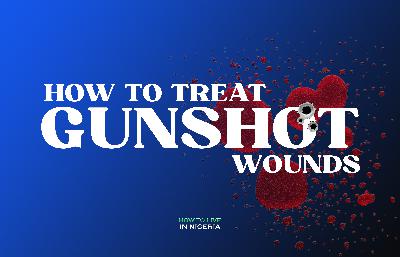How to Live in Nigeria
Subscribed: 1Played: 3
Subscribe
© 2021
Description
If you're an average person living in Nigeria at the moment, chances are that you're not living in this country by choice. In fact, if I ask you to draw up a list of the places you'd rather be living, I'd bet Nigeria wouldn't feature in the top three, or top five... or for people who are really really frustrated], in the top twenty.
I feel your pain. What else is there to say? There's nothing I can tell you that you're not already tired of hearing. No light? Corruption? The economy? Insecurity? Police brutality? You're tired of waiting for things to get better, or you just don't care anymore. You just want to get out.
But your chances of being able to japa may not be as favorable as you think, or it may take a lot longer than you want to imagine. There are millions of other people like you who want to ex, after all. So you're probably going to be living in NIgeria for a while. So while you wait, or even if you’ve resigned to stay, how do you keep your head above water? The first step is in understanding what Nigeria is.
You see, Nigeria is a tenement, and you are a tenant; not a citizen. You may be entitled to rights and benefits on paper, but they don't mean squat in the real world.Think about what happens when you rent a house in Lagos. The landlord just gives you a space to live in, and you pay him per year to live in that space. Everything else is your responsibility: light, water, maintenance, even security. If anything breaks, if the roof is leaking or the walls are crumbling, it should be his responsibility to deal with, but name one Lagos landlord who has ever done that and I'll give you 10k on the spot.
So that’s Nigeria for you; a hastily built, partially crumbling, unsecured tenement with a deadbeat landlord. Now, how do you live in such a place? How do you navigate the police force and their unending shenanigans? How do you battle runaway inflation that seems poised to destroy grumbling families already? How do you assert your rights when the landlord wants you to shut up about it? How do you live day to day in a system that wants to choke out any traces of joy from your existence? Even if your village people have doomed you to a life of squalor, how you fit die beta?
Welcome to “How To Live In Nigeria.” We’re not offering solutions to this country’s problems (honestly, some people suggest there is ese ile involved, and we are not jazz men). However, we have the opportunity to examine how the Nigerian can survive as a human being living in such a place.
Ours is not to condemn, nor to proffer solutions. We are here to provide practical tips, examine the lives of regular NIgerians who are thriving, and get into a little history from time to time, because it helps to understand how we got to where we are.
Stay tuned.
I feel your pain. What else is there to say? There's nothing I can tell you that you're not already tired of hearing. No light? Corruption? The economy? Insecurity? Police brutality? You're tired of waiting for things to get better, or you just don't care anymore. You just want to get out.
But your chances of being able to japa may not be as favorable as you think, or it may take a lot longer than you want to imagine. There are millions of other people like you who want to ex, after all. So you're probably going to be living in NIgeria for a while. So while you wait, or even if you’ve resigned to stay, how do you keep your head above water? The first step is in understanding what Nigeria is.
You see, Nigeria is a tenement, and you are a tenant; not a citizen. You may be entitled to rights and benefits on paper, but they don't mean squat in the real world.Think about what happens when you rent a house in Lagos. The landlord just gives you a space to live in, and you pay him per year to live in that space. Everything else is your responsibility: light, water, maintenance, even security. If anything breaks, if the roof is leaking or the walls are crumbling, it should be his responsibility to deal with, but name one Lagos landlord who has ever done that and I'll give you 10k on the spot.
So that’s Nigeria for you; a hastily built, partially crumbling, unsecured tenement with a deadbeat landlord. Now, how do you live in such a place? How do you navigate the police force and their unending shenanigans? How do you battle runaway inflation that seems poised to destroy grumbling families already? How do you assert your rights when the landlord wants you to shut up about it? How do you live day to day in a system that wants to choke out any traces of joy from your existence? Even if your village people have doomed you to a life of squalor, how you fit die beta?
Welcome to “How To Live In Nigeria.” We’re not offering solutions to this country’s problems (honestly, some people suggest there is ese ile involved, and we are not jazz men). However, we have the opportunity to examine how the Nigerian can survive as a human being living in such a place.
Ours is not to condemn, nor to proffer solutions. We are here to provide practical tips, examine the lives of regular NIgerians who are thriving, and get into a little history from time to time, because it helps to understand how we got to where we are.
Stay tuned.
4 Episodes
Reverse
Comments







